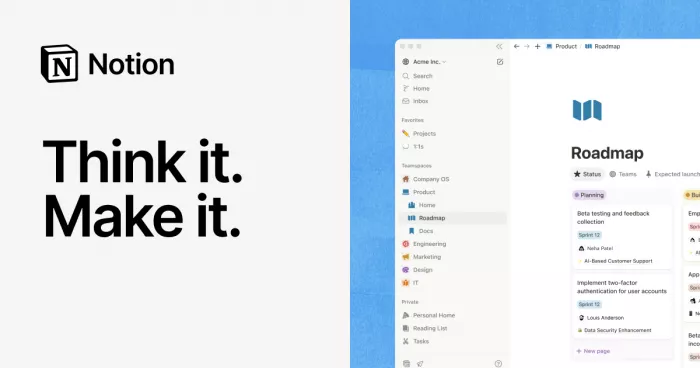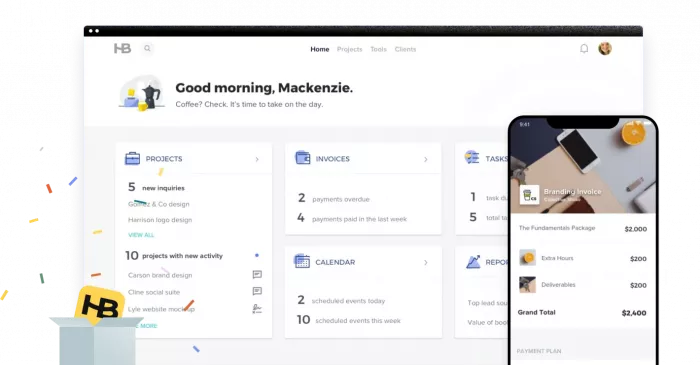
Finding the right platform to showcase your portfolio and manage your freelance writing business is crucial. While WritingManager.com is an excellent tool for creating a portfolio and finding writing jobs, your specific needs might call for a different solution. You might need integrated invoicing, access to high ticket clients, or total creative control over your site.
This guide breaks down the 10 best alternatives to WritingManager.com, so you can find the perfect fit for your career stage and goals.
Our Top Picks: The 3 Best Alternatives at a Glance
Don't have time to read the full list? Here are our top 3 recommendations for most writers:
🥇 Best All in One Platform: Bonsai — Perfect for serious freelancers who need contracts, invoicing, and project management in one place.
🎨 Best for Building Authority: Medium.com — The easiest way to create a stunning, minimalist portfolio that also helps you build a readership and authority in your niche.
💸 Best Free Option: Clippings.me — The ideal no cost solution for new writers who just need a simple, professional page to host their work.
In Depth Reviews of the Top 10 WritingManager.com Alternatives
Here’s a detailed look at each platform, including who it's best for, key features, pricing, and why it's a great alternative to WritingManager.com.
1. Medium.com

Best For: Writers who want to build a portfolio that also functions as a blog to attract clients and establish authority.
Medium is a unique hybrid of a blogging platform and a portfolio. You can publish articles directly on the site, build a following, and use your profile as a living portfolio of your expertise. Its clean, reader friendly interface makes your content the star.
Key Features: Built in audience, monetization through the Partner Program, powerful editor, custom domains for publications.
Pricing: Free to publish. A premium membership for $5 a month is required to join the Partner Program for monetization and to get unlimited reading access.
Why it's a good alternative: It not only showcases your work but also helps you build a personal brand and attract inbound leads by demonstrating your expertise to a large, engaged audience.
2. Clippings.me

Best For: Beginners and journalists who need a completely free, no frills online portfolio.
Clippings.me is a reliable, free, and straightforward platform for hosting your writing clips. You can upload PDFs, add multimedia links, and organize your work into categories without spending a dime.
Key Features: Unlimited clips, portfolio categories, PDF/multimedia support, bio and social links.
Pricing: Free. A premium plan for around $9.99 a month is available to add a custom domain.
Why it's a good alternative: It is the most functional and generous free portfolio platform on the market, making it perfect for new writers.
3. Contently

Best For: Experienced professionals aiming for high paying projects with major brands.
Contently is an elite talent network, not just a portfolio tool. You create a free portfolio, but access is selective as the platform's main business is selling content marketing software to enterprises. Contently's team then uses its network to match approved writers with clients like Google and Dell. The pay rates are significantly higher than on general freelance sites.
Key Features: Free professional portfolio, access to exclusive projects, transparent payment system.
Pricing: Free for writers.
Why it's a good alternative: It offers direct access to high caliber, enterprise level clients that you won't find on standard job boards.
4. Bonsai

Best For: Freelancers who need an all in one suite to manage their entire business.
Bonsai is a full fledged business management tool. It handles proposals, contracts, time tracking, and invoicing, allowing you to manage your entire client workflow from a single dashboard.
Key Features: Integrated proposals, legally vetted contracts, invoicing, time tracking, project management.
Pricing: Starts at $17/month.
Why it's a good alternative: It replaces 4 or 5 other tools, professionalizing your business operations far beyond what a simple portfolio site can do.
5. Upwork

Best For: Writers seeking a constant stream of diverse job opportunities.
As the world's largest freelance marketplace, Upwork offers an unmatched volume of job postings. The U.S. freelance industry contributes over $1.3 trillion to the economy annually (Upwork), and a huge portion of that work happens here.
Key Features: Massive job board, payment protection, client feedback system.
Pricing: Free to join. Upwork now uses a variable service fee on earnings, though for many freelancers the rate remains around 10 percent.
Why it's a good alternative: The sheer volume of available jobs is unparalleled, making it a great place to find consistent work.
6. ClearVoice

Best For: Mid to senior level writers specializing in brand journalism and content strategy.
Similar to Contently, ClearVoice is a talent network connecting freelancers with brands like Intuit. It emphasizes collaboration through its built in workflow platform and allows you to set your own pay range.
Key Features: "CV" portfolio, transparent pay rates, collaborative platform with clients.
Pricing: Free for freelancers.
Why it's a good alternative: It focuses on high quality brand storytelling and gives writers more control over their rates.
7. Notion

Best For: The hyper organized writer who wants to build a completely custom workspace.
Notion is a flexible, all in one productivity tool. You can use it to build a public portfolio, a private client portal, a content calendar, and an invoice tracker, all in one place and designed exactly how you want.
Key Features: Flexible page building, databases for tracking, public page sharing.
Pricing: A generous free plan is available. Paid plans start at $10 per user monthly. Note that after a limited trial, Notion AI is only available in higher tier plans.
Why it's a good alternative: It offers unmatched customizability for both your public portfolio and your private business dashboard.
8. WordPress.org

Best For: Writers who want 100% ownership and control over their brand.
Powering over 43% of the internet (W3Techs), self hosted WordPress offers unlimited freedom. It requires your own domain and hosting, but you get complete control over design, functionality, and content.
Key Features: Total design freedom, endless functionality with plugins, full content ownership, powerful for SEO.
Pricing: The software is free; domain and hosting costs typically range from $5 to $30 a month.
Why it's a good alternative: It allows you to build a true digital asset that you completely own and control, separate from any single platform.
9. HoneyBook

Best For: Writers managing a high volume of clients who want to automate their workflow.
HoneyBook is a business management platform that excels at clientflow automation. You can automate everything from lead capture and follow ups to proposals and invoicing, saving you hours of administrative work.
Key Features: All in one client management, automated workflows, online payments, scheduling tools.
Pricing: Starts at $39/month.
Why it's a good alternative: Its automation features are best in class for writers looking to scale their business and spend less time on admin tasks.
10. Journo Portfolio

Best For: Writers who want an elegant, minimalist portfolio that’s incredibly easy to set up.
Journo Portfolio is all about making your work look good with minimal effort. Its clean themes and simple interface mean you can have a professional site live in minutes. Just paste a URL, and it automatically imports your article's details.
Key Features: Modern themes, automatic article importing, password protection, built in analytics.
Pricing: Free for up to 10 articles. The Pro plan is around $5 to $10 a month for a custom domain and unlimited pieces.
Why it's a good alternative: It's faster to set up and has a more modern aesthetic than many other dedicated portfolio builders.
Feature Comparison: WritingManager vs. The Alternatives
| Platform | Best For | Portfolio Focus | Job Board | Project Management | Pricing Model |
| WritingManager | All around writers | Strong | Yes | Basic | Freemium/Subscription |
| Medium.com | Building Authority | Strong | No | No | Freemium |
| Clippings.me | Beginners | Strong | No | No | Freemium |
| Contently | Enterprise level | Strong | Curated | Yes | Free (for talent) |
| Bonsai | Business management | Basic | No | Strong | Subscription |
| Upwork | Gig seekers | Profile based | Strong | Yes | Service Fee |
| ClearVoice | Brand Storytelling | Strong | Curated | Yes | Free (for talent) |
| Notion | Customization | DIY | No | Strong | Freemium |
| WordPress.org | Total control | DIY | No | Via Plugins | Self Hosted Costs |
| HoneyBook | Automation | Basic | No | Strong | Subscription |
| Journo Portfolio | Minimalists | Strong | No | No | Freemium |
How to Choose the Right Platform For You
Still unsure? Ask yourself these questions:
What is my main goal? If it's just showcasing work, choose a portfolio first tool like Journo Portfolio. If it's managing your entire business, you need Bonsai or HoneyBook. If it's building a personal brand, Medium is an excellent choice.
- What is my budget? If you're starting with $0, Clippings.me, Medium, and Notion are your best bets.
- How much control do I want? For ultimate control and to build a long term asset, WordPress.org is the undisputed winner.
While the alternatives are powerful, WritingManager.com remains a strong contender for its focused approach. It perfectly combines portfolio creation and job hunting in one simple package, making it a fantastic choice for many writers. The best platform is simply the one that aligns with your specific needs today.




Comments